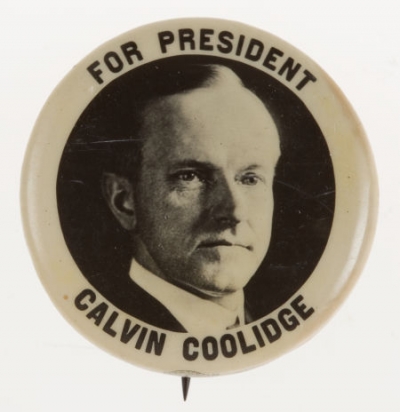Is it Monday already? Then that means it’s time for another Carnival of Wealth. Personal finance blog posts from around the world. Are you ready? We’re ready. Read away:
Don’t just skim this post from Paula Pant at Afford Anything. Read the mouseover text on her comely picture that graces the header. Paula reasons that making assumptions about passersby, based on just their appearances and their possessions, is stupid. Not just in that you might be wrong, but that it’s a stunning waste of time. People’s Lexuses and Louis Vuitton accessories are, by definition, conspicuous. Their lease agreements and credit card balances are not.
Free Money Finance lists 10 ways to network. Listen to podcasts, join LinkedIn etc.
Starting with data accumulated over the last 85 years, Michael at Financial Ramblings used standard regression analysis to examine what happens when you create an investment portfolio consisting entirely of bonds, then turn it into stocks in 10% increments. If you think having a higher concentration in bonds means unequivocally less risk, you’d be wrong.
Things you could spend the next 24 minutes doing:
- Listening to side 2 of The Darkness’s Permission to Land
- Yoga
- Watching the most recent DVRed episode of whatever sitcom, assuming you have that thing that eliminates commercials
- Foreplay (Editor’s note: If you’re doing it right, that is)
- Preheating an oven
- Listening to the Wealthonomics podcast, from the folks at Becoming Your Own Bank.
(See? They turned “wealth” and “economics” into a portmanteau. Isn’t that rich? Get it? “Rich”? Do we have to spell everything out for you?) The Becoming Your Own Bank posse has now submitted to the CoW for 5 consecutive self-unaware weeks. Every time they do we goof on their core (awful) business of whole life insurance, and every week they keep coming back for more. Time to raise the stakes. If they submit again next week, then what? Do we start accusing them of sexual crimes against nature? Poke fun at photographs of their kids?
This week, the Becoming Your Own Bank crew gave us an audio submission. Speaking of which…
Are we the only ones to notice that podcasts are almost all unlistenable? The very concept of a podcast is a loathsome thing. Yes, it’s great that in 2012 anyone who wants to can broadcast his opinion (“to a potential audience of billions!”) However, very few us can play the part of a radio host. You can’t just press “record” and expect people to care what you have to say. Most podcast hosts couldn’t keep a show moving to save their lives. Droning, uncomfortable silences, monotonal delivery…it’s as if getting people enthused isn’t just an afterthought, it’s something most podcast hosts are actively trying to avoid. Listening to 3 guys (who know each other, no less) awkwardly hemming and hawing their way through what’s supposed to be an enthralling conversation is difficult.
Tips for aspiring podcasters:
- Fewer cooks spoiling the broth. Two voices, max. If you’re worried about having dead air to fill, see tip #4
- Edit. This isn’t going live.
- At least have an outline, some notes or something.
- Don’t.
No one will listen to this podcast, not even the hosts’ significant others. The hosts could have announced the exact latitude and longitude of the Lost Dutchman’s Mine at the 23:46 mark and no one will ever hear. Which is a shame, because we like their topic. They tear into that pop-finance hoyden Suze Orman, who has as much business dispensing personal finance advice as she does telling her readers how to find a man. Except we already crucified Ms. Orman several months ago for her brazen attitude and love of misinformation. The Becoming Your Own Bank hosts play endless clips of Ms. Orman’s show, and deconstruct it. Suze’s voice is no day at the beach, either.
W at Off-Road Finance teaches you how to select a broker.
No, of course they aren’t all the same. Some brokers can access only the NYSE and NASDAQ: if you want to trade stock options on the Chicago Board of Trade, you’d be out of luck. And if you think E*Trade offers fantastic deals to its customers…well, you really need to read W’s post.
Even when the world around him is falling apart, Andrew at 101 Centavos manages to make us laugh and, more importantly, not want to slash our wrists. This week, Part II of his defensive strategies on how to be damaged as little as possible by the seeming inevitability of ObamaCare. Also, you’d never believe which $20 billion company’s executives had multiple hands in writing the ObamaCare bill. Andrew’s post is worth reading just for that.
Editorial: At Control Your Cash, we try to write about stuff that no one else has written about in detail. If we were being repetitive, echoing the same tripe everyone else has to say, we wouldn’t expect you to stick around. That’s one of the reasons we like 101 Centavos so much, because Andrew uncovers truths that the populace at large either consciously or unconsciously ignores. What we’re saying is, How did it take 3 years for someone to explain which corporate suits are responsible for writing the impenetrable ObamaCare law, and why did the answer come just from some guy we know who happens to submit to the CoW every week? CNBC and The Wall Street Journal have no interest in this? A rhetorical question, but you folks who’ve convinced yourselves that Mitt Romney can’t be president because he’s committed only to his rich friends in big business, keep believing that.
(sigh) Time for a drink.
And we’re back. Four more and then we crawl into that bottle and close the shades. Harry Campbell at Your PF Pro says to improve someone’s credit rating (other than yourself, that is), you should add that person to your credit card accounts as an authorized user. Whether you should give them the keys to your house is a different question. Harry added his girlfriend to his credit card account, her TransUnion score improved by 4 points, and most impressively they’re still together a month later.
(Shades of a serial marrier from CYC’s immediate family. Outgoing Husband #3, to Incoming Husband #4: “She’ll ruin your credit, too!” Which she did.)
Now, our weekly trifecta from the Evolution Finance crew. First, Louis at Wallet Hub explains secured credit cards and how they work. Just remember that secured cards are a stepping stone, like marijuana.
It’s bad enough that you chose to live in the New York/New Jersey area. If you did, and if you’re draining water from your basement as we speak…well, we admire your devotion. Bet you hadn’t thought about your credit card bills in the last few days, did you? From Liana at Card Hub, what each of the major banks are doing to accommodate everyone who didn’t/couldn’t make their minimum payments on time.
Finally, John Kiernan at Wallet Blog thinks the housing market is about to recover. (Well, Hurricane Sandy did reduce supply.) Seriously, though. Prices and mortgage rates remain historically low. The combined nadir is a buying opportunity if there ever was one. Gaining access to the capital to take advantage of it? Well, that’s your problem.
Wednesday’s post will be cheerier, we swear. Yes, Wednesday’s post. There’s a new one every Friday, too. Anti-Tips daily, a new CoW Monday, and sporadic goodness on Investopedia. Thanks for coming.





